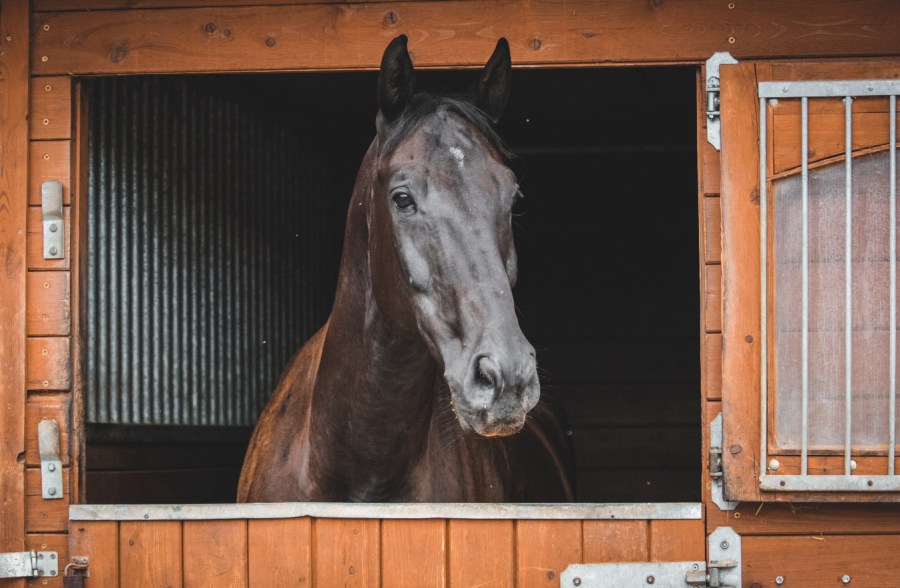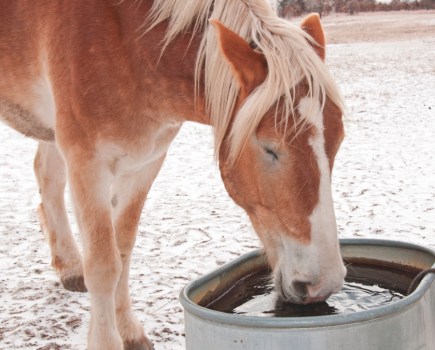Vets are seeing huge benefits when using acupuncture alongside conventional treatments in horses. Vet Sarah Hunter explains how it works and the benefits it can offer.
Acupuncture is a practise of alternative or complementary therapy evolved from a form of traditional Chinese medicine. The theory is that tissue reacts when it is diseased or injured and by placing needles in this area, the body is stimulated to heal it.
The therapy involves placing fine sterile needles into various parts of the body to treat pain and disease. The areas in which the needles are placed are known as trigger or reflex points and stimulation of these areas is thought to halt or reverse the disease process by stimulating natural bodily mechanisms. These reflex points can be triggered by applying pressure with the hands or another object instead of a needle. This is known as acupressure.
As well as stimulating the trigger points with needles, an electrical current can be passed through the needles, resulting in stronger or prolonged stimulation of the area. This is called electroacupuncture.
The key element is to be able to identify the trigger points correctly, thus applying needles or pressure to the exact area.
How does it work
The placement of needles in specific areas or acupoints stimulates the tissue, encouraging the body to heal. Acupuncture is also thought to cause the release of neurochemicals such as endorphins which can make the patient relax and feel happy. The needles are left in place for up to 30 minutes and are sometimes twisted or turned to create more of a stimulus.
The effects of acupuncture can vary depending on the patient. Some animals are known as good responders and may become sedated during the session. In others little to no response is seen. If an area is particularly uncomfortable, the patient may resist insertion of the needle, but often it is well tolerated and, in most cases, is performed with the animal conscious.
The needle is placed into muscle and sometimes twitching of the affected muscle or skin around the insertion may be noticed. If the needle is inserted into connective tissue it may be more painful and on some occasions the muscle may appear to grasp or bend the needle during stimulation. There may be signs of improvement within a few days of treatment, but, more often, three or four sessions are required before positive results are seen. Initially, treatment sessions take place every week, then the interval between them is gradually increased. The treatment plan is made specifically for each animal, depending on their requirements.
How can it benefit horses
The main use of acupuncture is to treat pain, especially pain related to the musculoskeletal system. It is most commonly used for chronic pain such as arthritis, or acute conditions like muscular strains and spinal pain. Acupoints can affect local areas, remote areas or specific organs, so many conditions can be treated in this way. There may also be some effect on the immune system, enabling conditions such as allergic skin disease to be managed.
Because it can achieve the release of muscle spasm or pain, acupuncture can be used to provide pain relief during surgical procedures. Some extremely painful conditions such as uveitis and a form of head-shaking related to trigeminal nerve pain (a debilitating condition causing severe tingling and discomfort to the horse’s face) have shown positive results.
Acupuncture has also been used to manage behavioural issues, especially when there is a pain component to the behaviour.
It is recommended that acupuncture is used alongside conventional treatment. It may result in lower doses of medication being required and there is no withdrawal needed for competition, so it can provide pain relief around the time of a show or event.
Acupuncture can also be useful and effective for rehabilitation cases. It has been shown to have positive results on wound healing; it can help animals recovering from nerve paralysis; and it can aid recovery time from musculoskeletal disorders. In all cases, a thorough diagnostic work-up is needed to investigate the underlying causes of pain and disease and ensure that all options are explored before deciding to use acupuncture alongside conventional treatment.
It is important to note that acupuncture can only be performed by a vet or registered veterinary nurse under the direction of a vet.
To find a vet offering treatment near you, visit the Association of British Veterinary Acupuncturists at abva.co.uk
Meet the expert: After graduating from the Royal Veterinary College, London, Sarah Hunter BVetMed MRCVS worked for animal charities in Africa before starting at a mixed practise in Scarborough. After four years spent treating everything from penguins to cows, she decided to concentrate on companions animals and horses.
Lead image by Shutterstock
Check out our subscription offer









